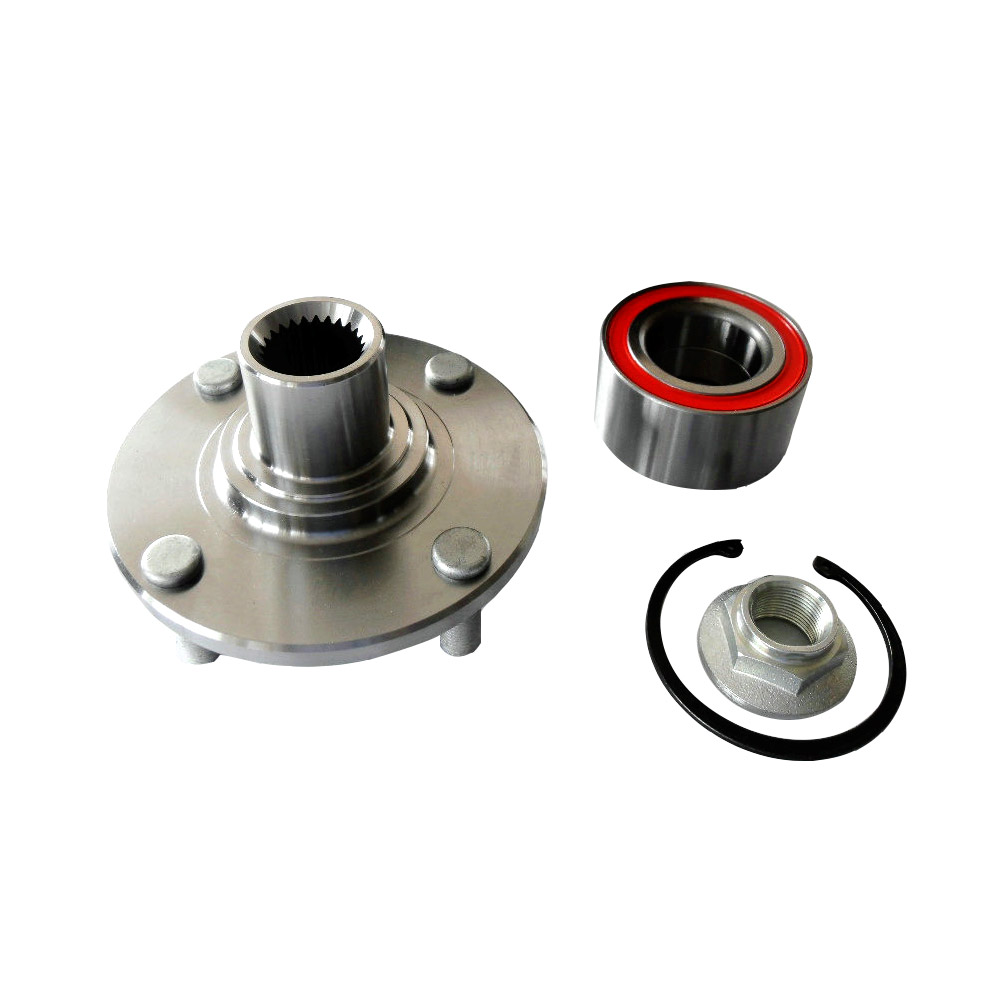In the complex world of automotive engineering, wheel hub bearings play a critical role in ensuring smooth, safe, and efficient vehicle operation. While often overlooked by everyday drivers, these components are essential for the functionality of a vehicle's wheels, directly impacting its handling, safety, and overall performance.
The primary role of the hub bearing is to facilitate the rotation of the wheels with minimal friction, ensuring smooth movement.
Hub bearings bear the vehicle's weight, including the passengers and cargo, while maintaining the wheel's position relative to the chassis.
They maintain precise alignment of the wheels, which is vital for safe handling and braking performance.
High-quality hub bearings help reduce noise and vibration, providing a comfortable driving experience.
Commonly used in cars, ball bearings are versatile and can handle both radial and axial loads effectively.
Designed for heavier vehicles like trucks, roller bearings are better suited for handling higher loads.
These are ideal for vehicles that experience significant axial and radial loads, such as SUVs and heavy-duty trucks.
Smooth wheel rotation ensures better handling, especially at high speeds or during sharp turns.
Durable hub bearings reduce wear and tear on other components, such as the suspension and tires.
By minimizing friction, high-quality bearings contribute to better fuel economy.

Properly functioning hub bearings ensure reliable braking and stability, particularly in emergency situations.
A humming, grinding, or clicking noise while driving often indicates a worn-out bearing.
Excessive vibration or wobbling, especially at higher speeds, can signal bearing issues.
Misalignment caused by faulty hub bearings can lead to irregular tire wear patterns.
Modern vehicles with anti-lock braking systems (ABS) may display a warning light if the wheel speed sensors, often integrated with the hub bearing, detect a problem.
Periodic checks during routine vehicle maintenance can help identify wear or damage early.
Failing to replace worn bearings can lead to more severe damage, such as wheel detachment or suspension issues.
Opting for original equipment manufacturer (OEM) parts ensures compatibility and reliability.
Hub bearing replacement requires precise tools and expertise; it’s best performed by a qualified mechanic.
Modern bearings often include wheel speed sensors for ABS and traction control systems, enhancing vehicle safety.
Advanced alloys and coatings improve the durability and performance of hub bearings, reducing the need for frequent replacements.
Many bearings now come pre-sealed, protecting them from contaminants like dirt and water and reducing maintenance requirements.
Innovations in material science have led to lighter bearings, which contribute to overall vehicle weight reduction and improved fuel efficiency.
While predominantly used in vehicles, wheel hub bearings are also crucial in:
Supporting heavy loads and enabling smooth operation in conveyor belts and manufacturing equipment.
Ensuring stable and efficient movement of train wheels.
Supporting landing gear mechanisms in airplanes.
Wheel hub bearings may not be the most visible part of a vehicle, but their importance cannot be overstated. From enabling smooth wheel rotation to ensuring safety and stability, they are a cornerstone of modern automotive design. Regular maintenance, high-quality materials, and advancements in technology continue to make wheel hub bearings more efficient, durable, and indispensable in various applications. Understanding their role helps drivers appreciate these small yet mighty components that keep vehicles running smoothly on the road.






